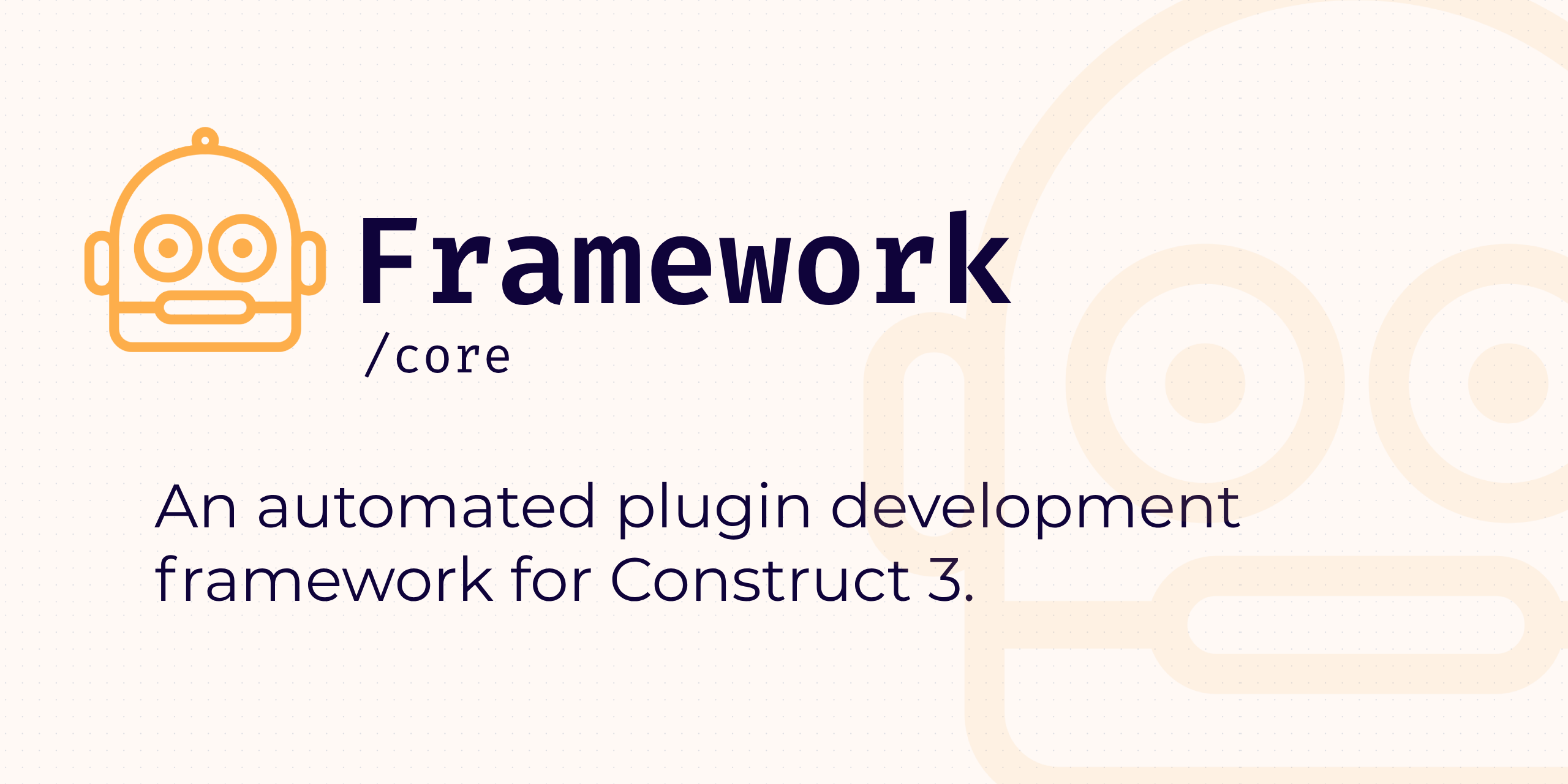This repository contains the C3FO CLI and TypeScript utilities needed for the C3 Framework.
Since the framework is fully configurable, you can install this package by yourself and setup things manually but using the previously mentioned starter base is highly encouraged.
You can install this package through NPM using this repo URL:
npm install https://github.com/C3Framework/core
A normal structure for a project would look something like this:
/dist
/examples
├── example.c3p
└── example.png
/export
/src
├── /lang
│ ├── de-DE.json
│ └── es-MX.json
├── /libs
│ ├── mylib.ts
│ └── style.css
├── addon.ts
├── editor.ts
├── icon.svg
├── instance.ts
└── runtime.ts
c3.config.js
tsconfig.json
All the paths are customizable creating a c3.config.js on the root of the project.
You can check the starter base for more information.
You can run the following to see all the available commands:
npx c3fo
You can build your project using:
npm run build
You can run a development server using:
npx c3fo build --dev
You can generate documentation using:
npx c3fo doc
The C3 Framework offers a coupled workflow for defining ACEs. You define the configuration of your ACEs by marking your code using TypeScript decorators.
To start you must tell to C3FO on what classes your ACEs will be defined, by using the @AceClass decorator. After that, you can start coding your logic in a natural way, marking functions and parameters with their respective decorators, and using the C3 types (such as combo, cmp, eventvar, etc.) automatically loaded from the framework:
import { AceClass, Behavior, Condition, Param } from "c3-framework";
import Config from "./addon";
const opts = [
'test',
'something',
'another',
];
@AceClass()
class Instance extends Behavior.Instance(Config) {
constructor() {
super();
}
@Condition('Is Enabled')
isEnabled() {
return true;
}
@Condition('Is "{0}" Something')
isSomething(
@Param({
items: [
{ test: 'Test' },
{ something: 'Something' },
{ another: 'Another' },
],
})
tag: combo // Notice that the Construct types are available to use on TypeScript
// tag: Cnd.combo // You can also access them through the `Cnd` or `Act` namespaces
) {
return opts[tag] == 'something';
}
}
export default Instance;This is the default c3.config.js configuration loaded:
/** @type {import("c3-framework").BuildConfig} */
export default {
minify: true,
host: 'http://localhost',
port: 3000,
sourcePath: 'src/',
runtimeScript: 'runtime.ts',
addonScript: 'addon.ts',
exportPath: 'export/',
distPath: 'dist/',
libPath: 'src/libs',
langPath: 'src/lang',
defPath: 'src/',
examplesPath: 'examples/',
defaultLang: 'en-US',
}Thanks to Skymen and the ConstructFund for the efforts on making the C3IDE2, project that originated this framework.
